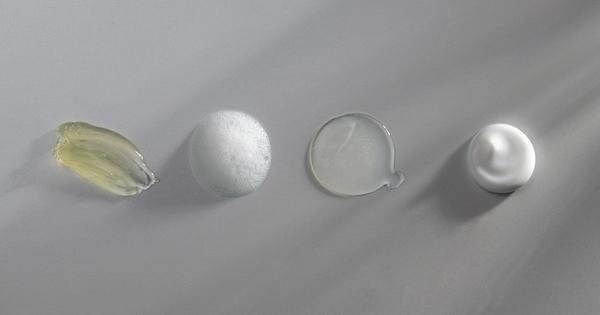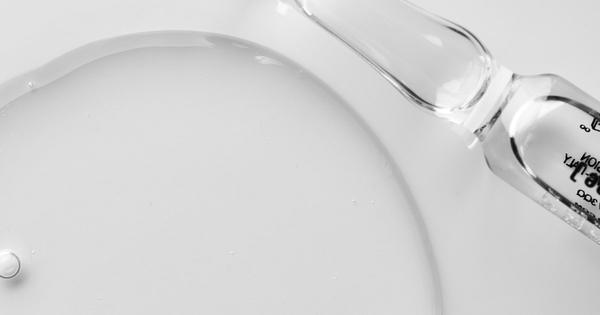Sublime Skin Micropeel Lotion
Exfoliating lotion
skin care
Maria Giulia Simonazzi | International Training Manager
8 min read

Acne. Blackheads. Clogged pores on your face. Oily skin. Dry, flaking skin. Dealing with these issues every day sure sounds miserable, but for many adolescents, skin issues are a hallmark of their teenage years.
Hormones, inconsistent cleansing routines, and the introduction of new pore-clogging elements like sweat and makeup can make teenage skin particularly susceptible to breakouts. Many teens quickly learn to cover their skin issues with makeup instead of preventing them in the first place through proper skincare.
Teens don’t need to spend these formative years embarrassed by their skin. In fact, thoughtfully choosing a few select skincare products and using them regularly can give teens acne-free, glowing skin and set the stage for a lifetime of good skincare habits.
"Having a correct diet helps rebalance sebum production. It is difficult to follow food advises when you are a teenager but it is mandatory to prevent acne and oily skin. Main rules: reduce fried food and sugar intake. Add some fruit and vegetables to the menu and do not exceed with sweet beverages."
Monica Poli - Skin Tech and Device Product Manager
The best skincare products for teenagers depend on what kind of skin they have. Skin types can be categorized as either oily, dry, sensitive, normal, or combination. However, keep in mind that teenage skin is at the mercy of hormonal changes, so skin type can (and will!) change over time.
Oily skin is caused by an overproduction of the skin’s natural oil, called sebum. People with oily skin are more likely to get blackheads and pimples and to exhibit enlarged pores. Oily skin is very common in teenagers, since one main cause of oily skin is the hormonal changes teenagers go through during puberty.
People with dry skin may experience redness, flaking skin, or itchiness depending on the severity of their dryness. It’s important for teens with dry skin to use hydrating products that will moisturize their skin without clogging pores.
Sensitive skin may quickly become red, itchy, or painful due to skincare products, sun exposure, sweat, or makeup. People with this skin type should use specially formulated skincare products with “gentle” or “sensitive” on the label.
Normal skin is just what it sounds like—normal! It’s not dry, overly oily, or sensitive. While most people eventually have normal skin, particularly as they age, it’s not as common during the teenage years.
Combination skin is oily in some areas and dry in others. Commonly, the “t-zone”—the nose and forehead—is oily, while the rest of the face is dry. Caring for combination skin can be difficult, but it’s not impossible. Simply use cleansers and moisturizers suitable for oily skin in the t-zone and products geared towards dry skin on the rest of the face.
Between school, extra-curricular activities, work, and socializing with friends, teenagers probably don’t have a ton of extra time to spend on their skincare routine. However, taking care of teenage skin doesn’t have to be complicated, especially with a few quality products in your medicine cabinet.
Check out this simple step-by-step routine for healthy teenage skin that you can feel confident in.

Teenagers should cleanse their skin every morning and night as well as after exercise. The best cleanser for your skin depends on your unique skin type.
Teenagers with oily or combination skin should opt for a cleanser containing salicylic acid, since this ingredient reduces sebum production and can help prevent excessive oiliness. For teens with dry skin, a hydrating, soap-free cleanser is a great choice, since soap strips your skin of its natural oils.
The Comfort Zone foam cleanser is a great option for teens with normal, dry, or sensitive skin, since it gently cleanses while maintaining the skin’s natural oil equilibrium. Its foam-based formula is fragrance free, which is ideal for people with sensitive skin.
Exfoliating is an important—and underutilized—aspect of a healthy skincare routine. Regular exfoliation helps prevent the buildup of dead skin cells, which can clog pores and cause acne. Because teenage pores are already more susceptible to clogs from makeup, oil, and sweat, regular exfoliation is an important way to minimize unnecessary buildup.
Chemical exfoliation products are a good option for people with dry, sensitive, or acne-prone skin. That’s because they’re typically more gentle on your skin than a physical exfoliator, like a scrub or brush. Toners or exfoliating creams are a good choice for people with these skin types.
For normal- and oily-skinned teens, mechanical or chemical exfoliation can work well. The Sublime Skin Micropeel Lotion for example, renews and improves the skin's texture, making it more radiant, smoother and more even-toned, helping to reduce the look of imperfections and signs of aging.
Exfoliation is extremely important, but beware of over exfoliating! At the most, exfoliating treatments should only be performed one to two times per week. Over exfoliation can cause skin irritation, redness, and pain.
As you would with any skincare treatment, pay attention to how your skin reacts to exfoliating products. If they burn or irritate your skin, then a more gentle option or a reduction in frequency might be necessary. Some people even opt for DIY exfoliators made out of household ingredients, like oats and honey, for a gentle, nourishing exfoliation. Talk to your dermatologist for advice on the best exfoliating treatment for your skin.
Not every teen struggles with acne, but many do. Besides cleansing and exfoliating, there are some daily treatments you can use to treat and prevent acne.
Many people wonder whether salicylic acid vs benzoyl peroxide products are better for acne. Salicylic acid products are gentle on the skin while reducing sebum production and reducing the appearance of blackheads and acne. Benzoyl peroxide can also be used for acne treatment, but because it’s more harsh on the skin, it’s not a great option for people with sensitive or dry skin.
Retinol-based products, like /skin regimen/Lx Retinol Serum, are better for teens struggling with difficult acne or dealing with persistent acne scars. Retinols help even skin tone and keep skin plump and elastic.
If uneven skin texture or color is an issue, try /skin regimen/Lx Vitamin C Serum This unique formula makes dull skin appear radiant and shrinks large pores while evening out skin tone and reducing the appearance of dark spots.
If you’re unsure which product is better for you, check with your dermatologist.
Moisturization is an important last step in every skincare routine—even for teens with oily skin. While it may seem counterintuitive, your skin actually produces more sebum when you neglect moisturizing in order to counteract dryness. Moisturizing with a lightweight, oil-free moisturizer (ideally containing SPF!) morning and night keeps your skin hydrated without clogging pores.
Starting a habit of nourishing skincare from a young age will help prevent premature aging. Additionally, preventing acne and breakouts during the teenage years can build confidence and prevent acne scars.
When you’re ready to create healthy skin instead of hiding skin problems, consider Comfort Zone skincare for gentle, natural products that are gender neutral and free of synthetic fragrances. We’re committed to crafting sustainable products that produce actual results, so you can feel comfortable in your skin.

Exfoliating lotion
Anti-wrinkle serum
Anti-pollution face cleanser
Brightening serum
Ultra gentle cleanser